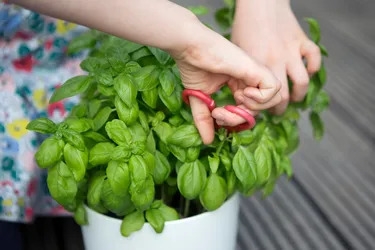This website uses cookies
This website uses cookies. For further information on how we use cookies you can read our Privacy and Cookie notice
This website uses cookies. For further information on how we use cookies you can read our Privacy and Cookie notice
In stock
Easy Return, Quick Refund.Details
Mkulima Organics Herbs & Spices
74%Seller Score
5 Followers
Shipping speed: Poor
Quality Score: Excellent
Customer Rating: Good

Back
Back
Back
Back
Subscribe
Search
Subscribe

Health & Diet Guide
 Medically Reviewed by Zilpah Sheikh, MD on July 02, 2023
Medically Reviewed by Zilpah Sheikh, MD on July 02, 2023
Written by WebMD Editorial Contributor
5 min read
Originally native to India, Asia, and Africa, basil was held to be a sacred and noble herb. In fact, the word “basil” comes from the ancient Greek “basilikhon” which means “royal."
Today, Ocimum basilicum (the scientific name for basil) grows in many places around the world. Many people even grow basil in their kitchens or gardens. This fragrant herb is used as a seasoning in a variety of dishes, and plays a key role in Italian and Thai cuisine.
There are more than 60 varieties of basil, with sweet basil being one of the most widely used. The herb has rounded leaves that are often pointed. It’s a bright green plant, although some varieties have hints of purple or red in their leaves.
Sweet basil has a very strong smell and a recognizable flavor. Different varieties of basil offer slightly different flavors. For instance, lemon basil has a tangy lemon taste, while mint basil has a refreshing minty taste.
Basil makes a colorful and flavorful addition to many dishes. It can also provide some serious health benefits.

Basil can be used to season a variety of dishes.
Holy basil, also known as tulsi, is an herb originally grown in the tropical climates of India and nearby countries. The scientific name is Ocimum sanctum or Ocimum tenuiflorum L.
In addition to being an herbal supplement, the holy basil tulsi plant is an important part of Hindu culture. Those in the largest Hindu sect, Vaishnavism, use tulsi for worship, prayer, and other spiritual rituals.
In India, tulsi is an important antioxidant in holistic medicine. This form of traditional medicine is called ayurveda, which considers health problems to be imbalances within a person’s mind, body, and spirit.
Basil contains many vitamins and minerals, as well as antioxidants such as lutein, zeaxanthin, beta-carotene, and beta-cryptoxanthin. Many of its health benefits come from these antioxidants, as well as its essential oils. These compounds mostly disappear during the drying process, so opt for fresh basil when possible to gain the most benefits.
Health benefits of basil include:
Reduction of oxidative stress. Basil is full of antioxidants. Sweet basil contains a compound called eugenol, and lime and lemon basils have limonene. These antioxidants, along with others such as anthocyanins and beta-carotene, help to fight free radicals in the body that can otherwise lead to cell damage and increase your risk for a variety of health conditions, including cancer, heart disease, arthritis, and diabetes.
Blood sugar regulation. Some studies suggest that adding basil to your diet may help reduce high blood sugar levels and help lessen long-term effects of high blood sugar.
Heart disease prevention. The eugenol in basil can block calcium channels, which may help to lower blood pressure. Its essential oils can help lower your cholesterol and triglycerides. Basil also contains magnesium, which can help improve your blood flow by allowing your muscles and blood vessels to relax.
Reduced inflammation. Essential oils in basil, including eugenol, linalool, and citronellol, help fight inflammation in your body. These anti-inflammatory properties help lower your risk of inflammatory conditions such as arthritis. heart disease, and bowel issues.
Protection against infections. Basil has antibacterial properties. Its oils may help fight bacteria if you have respiratory, urinary, abdominal, or skin infections.
Originally native to India, Asia, and Africa, basil was held to be a sacred and noble herb. In fact, the word “basil” comes from the ancient Greek “basilikhon” which means “royal."
Today, Ocimum basilicum (the scientific name for basil) grows in many places around the world. Many people even grow basil in their kitchens or gardens. This fragrant herb is used as a seasoning in a variety of dishes, and plays a key role in Italian and Thai cuisine.
Basil Powder

This product has no ratings yet.
/product/51/0155522/1.jpg?4377)